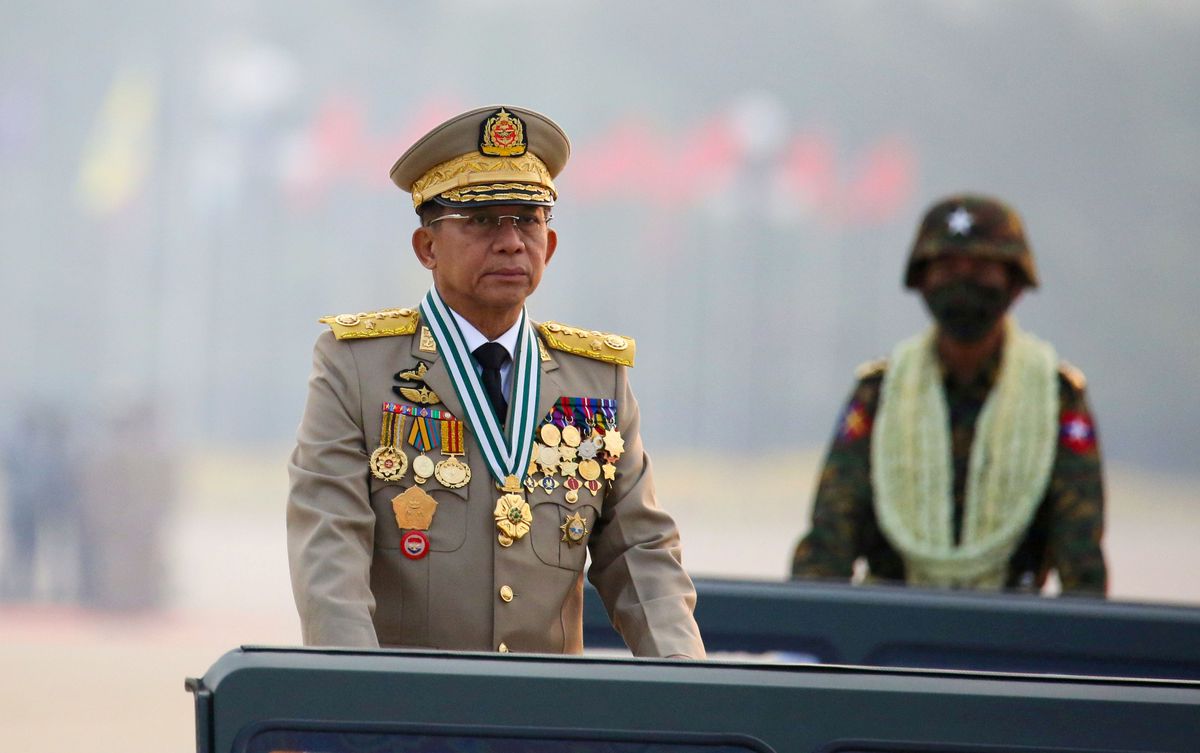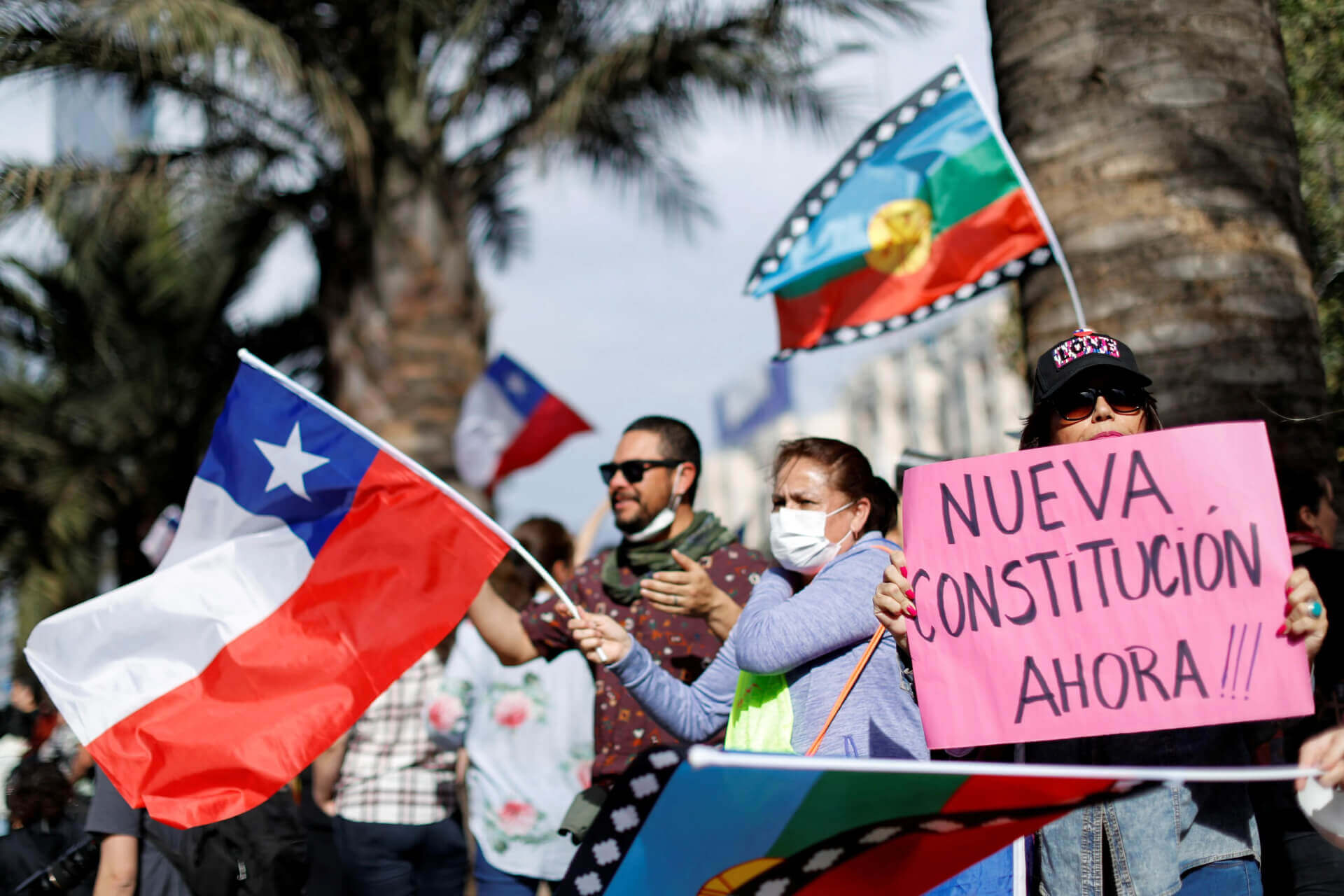South Asia
According to a United States State Department spokesperson, China has been encouraging or funding campaigns to disparage a $500-million-dollar US grant project in Nepal. The US said that if Nepal’s obligations under the deal are not met, it would have a severe impact on their bilateral relations. [Hindustan Times]
During Iranian Interior Minister Ahmad Vahidi’s visit to Pakistan on Monday, the two countries decided to set up a joint working group to address border issues. It is hoped that this collaboration will enable them to enhance cooperation in security, trade, and transborder travel. [Al Jazeera]
Central Asia and the Caucasus
Kazakh authorities are planning a tenfold increase in the tax rate for cryptocurrency mining companies, from 1 tenge ($0.0023) to 10 tenges per kilowatt hour of consumed energy. Officials said the move is meant to regulate companies from consuming excessive energy. [RFE/RL]
An Armenian soldier was wounded in a shootout between Armenian and Azerbaijani forces near the Artsakh border on Tuesday. The Armenian Defence Ministry blamed Azerbaijan for initiating the gunfire and violating the ceasefire. [Armen Press]
East and Southeast Asia
South Korea on Tuesday officially entered campaign season for its presidential election next month. Fourteen candidates have filed applications since registration opened on Sunday. President Moon Jae-in will be stepping down from his position, as presidents are barred from holding power for more than one five-year term. [The Straits Times]
Cambodia confirmed on Tuesday that no representatives from Myanmar will be present during this week’s meeting of the Association of Southeast Asian Nations (ASEAN). ASEAN has refused to invite military or political representatives to its meetings over the junta’s lack of progress on returning to peace and stability. [The Straits Times]
Europe
Following his meeting with Russian President Vladimir Putin on Tuesday, German Chancellor Olaf Scholz said there is enough common ground to find a diplomatic solution to the brewing crisis at the Russia-Ukraine border. Scholz said, “What is necessary now, so that it does not come to a dangerous situation in Europe, is that we acknowledge that this is already quite a lot: small beginnings for talks.” Additionally, Scholz said Putin conveyed a willingness to de-escalate and reduce tensions at the border during the meeting. [Euractiv]
Serbian Prime Minister Aleksandar Vucic on Tuesday dissolved Serbia’s National Assembly and called for snap elections to be held on April 3 in a bid to strengthen the ruling Serbian Progressive Party’s (SNS) hold on power. However, recent environmental protests in Belgrade calling for a legal ban on lithium and borate mining might pose a challenge to SNS during the elections. [Associated Press]
The United Kingdom and Japan signed a letter of arrangement to collaborate and conduct research on fighter jet sensors that will detect lethal threats. According to the British Ministry of Defence, the equipment could equip the country’s forces to better detect air, land, and sea threats. [Reuters]

Latin America and the Caribbean
Mexican President Andrés Manuel López Obrador claimed that the United States’ (US) recent ban on Mexican avocado imports is due to “political interests” and lobbying, saying that the quality of Mexican products would put American producers at a disadvantage. The US, however, has asserted that the ban was placed after a threat was made against a US plant safety inspector in Mexico and that it was informed by its years of concern about drug cartel violence in the western state of Michoacán. [Associated Press]
On Tuesday, Chile’s constituent assembly began deliberations on a new constitution to replace Pinochet-era laws. The assembly held debates on the nationalisation of mining, the creation of a one-chamber Congress, water rights, and protections for Indigenous territories. The session was held ahead of former leftist student protest leader Gabriel Boric's inauguration as president next month. [Al Jazeera]
Middle East and North Africa (MENA)
Russia has deployed several Mig-31K fighter jets equipped with hypersonic missiles and deployed long-range Tupalov Tu-22 strategic bombers to its Khmeimim air base in Syria. The aircraft will take part in Russian naval drills in the Mediterranean involving all its fleets, which include around 140 warships, dozens of planes, and over 10,000 servicemen. [Reuters]
Israeli Prime Minister Naftali Bennett met with Bahrain’s King Hamad bin Isa Al Khalifa in Manama on Tuesday. The visit was the first by an Israeli premier to Bahrain. The pair discussed “expanding strategic and security relations to address regional challenges, including nuclear threats, terrorist activity, religious extremism, poverty, and social challenges.” [Israel PMO]
North America
On Tuesday, Ottawa Police Chief Peter Sloly resigned following criticism over his handling of the ongoing anti-vaccine ‘Freedom Convoy’ protests that have wreaked havoc in the city. Sources told CBC News that since the advent of the trucker-led protests in Ottawa, Sloly has come into conflict with senior members of the administration and failed to lay out a cohesive plan of action to resolve the crisis. [CBC News]
Asian Americans gathered in New York to raise their voices against the increasing anti-Asian violence in the city, and indeed the country at large, following the murder of a 35-year-old Korean American woman Christina Yuna Lee in her own apartment. The police arrested 25-year-old man Assamad Nash, charging him with first-degree murder and sexually motivated burglary, among other charges. Authorities are yet to determine whether the incident was a hate crime. Yuna Lee’s murder comes in light of the death of another woman of Asian descent, Michelle Alyssa Go, last month, calling into question the reason for increased hate crimes against Asian Americans in the city. [The Washington Post]
Oceania
New Zealand’s Foreign Minister, Nanaia Mahuta, spoke with her Ukrainian counterpart Dmytro Kuleba on Tuesday. The pair underscored their joint commitment to shared values, including human rights and a rules-based international order. Mahuta also expressed concern over the unprecedented military build-up of Russian troops near Ukraine and reiterated her support for Ukraine’s sovereignty and territorial integrity. Additionally, Mahuta communicated New Zealand’s willingness to aid ongoing diplomatic efforts to resolve the crisis. [New Zealand Ministry of Foreign Affairs and Trade]
On Tuesday night, New Zealand’s Parliament passed legislation banning forceful conversion of a person’s sexual orientation, gender identity, or gender expression, otherwise known as conversion therapy. The legislation, introduced last year, was passed with 112 votes in favour and eight against. The legislation criminalises conversion practices on anyone and carries an imprisonment term of up to five years. [The Sydney Morning Herald]
Sub-Saharan Africa
Ahead of the European Union-African Union Summit in Brussels on Thursday and Friday, French Foreign Affairs Minister Jean-Yves Le Drian confirmed that French troops will be withdrawn from Mali but said that they will continue participating in counterterrorism operations in the Sahel region at large. In fact, Sahelian and French officials will meet today to deliberate over a new strategy; the meeting will be attended by the leaders of Nigeria, Mauritania, and Chad. [Africa News]
On Tuesday, Kenyan President Uhuru Kenyatta ordered government officials to create favourable trade conditions. His directive coincided with the visit of a number of Gulf investors. The president's office indicated in a statement that is looking to reduce “bureaucratic red tape that undermine[s] trade” in order to “help us create jobs and to help us develop our economy.” [Office of the Kenyan Presidency]

